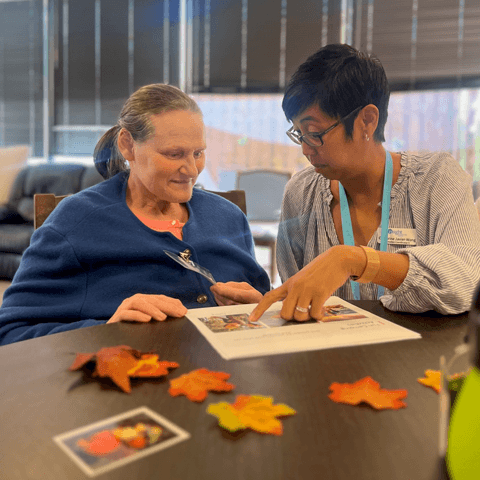
Conversation Starters
Tips for Connecting with Your Loved One at Home
Think about the last time someone asked you where you wanted to go out to eat.
Your mind immediately goes in a million different directions and weighing pros and cons of cost, location, reviews. But if a friend gives the option of a sushi restaurant or a pizza place, it’s much easier to make a choice.
Offer Guided Choices
For a person with dementia, open ended questions can feel even more overwhelming. But we also know that a care partner does not want to make all the decisions on what to eat, wear, and do in a day! Limiting options, but still offering choices, respects the individual as a person with preferences, but in a less overwhelming way. It sets you both up for success.
Offer Guided Conversations
Guided choices don't just apply to choices in daily living, but can also assist in guiding conversations with someone with dementia. How do you start a guided conversation? Start with:
- “Would you rather...”
- “This or That”
- Even just “yes or no” questions!
A person with dementia will have an easier time focusing on two options than answering a completely open ended question. These types of questions can then lead to further discussion or reminiscing. Asking if someone would ever go scuba diving, mountaineering, or skydiving can lead to conversations if they have ever done those things.
These small adjustments in communication not only help the individual with dementia with decision-making, but ultimately can foster meaningful conversations and connections. These choices both support the individual in maintaining a sense of independence, and also create opportunities for enjoyable and engaging interactions.
The printable cards linked below are a helpful tool to get started, making it easier to guide conversations with your loved one. We have included a selection of "This or That" questions, and “Would you ever?” questions.
Insight Blog
Read More







